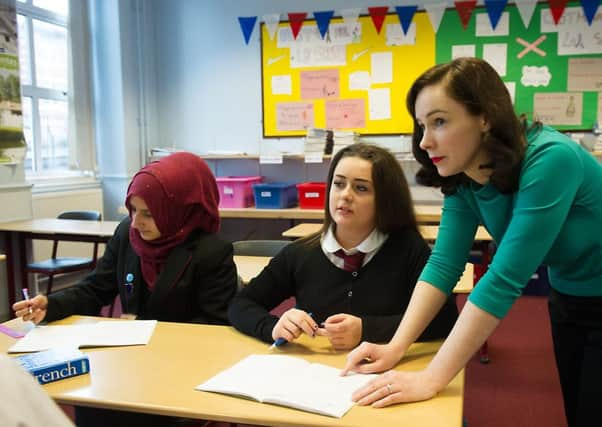Larry Flanagan: Consensus needed to close the education gap


There remain significant challenges which schools and colleges face, but we are building on success in our system. This success should be the starting point for policy development.
Intense focus is correctly placed upon closing the attainment gap, but the challenge of overcoming the impact of poverty on educational attainment is a deep and complex one.
Advertisement
Hide AdAdvertisement
Hide AdThe danger exists that in wishing to show progress, the government looks at short-term approaches which create the illusion of action but which fail to address the manifest issues.
National assessment is a case in point. The First Minister said she’s interested in “what works”. We know national testing doesn’t work – look at SATS in England. What is proposed in the new National Improvement Framework does not constitute high stakes national testing, thanks in part to the EIS campaign against such an approach.
But the potential direction of travel is ominous. We see this echoed in the First Minister’s softer comments about “Teach First” – an accelerated route into teaching for high-flying academics, avoiding the need to become a qualified teacher.
This will fundamentally undermine our world-renowned induction programme and the General Teaching Council. In England, “Teach First” and academisation led to the current crisis around recruitment and retention.
The First Minister has said she’s “not ideological” about these matters, but she should be. These aren’t incidental developments for they are part of the Global Education Reform Movement, the agenda Michael Gove and his successors so damagingly pursued, and the drive to privatise public education (which is globally worth $50 billion).
In Scotland, we have a free public sector education system, democratically controlled by local and national government, and built upon a comprehensive model of entitlement and inclusiveness. We should fight to protect these characteristics – not succumb to the vacuous vanity of being seen to do something different for the sake of it.
The SNP manifesto mentioned “regionalisation”, with some seeing this as an indication that Regional Boards would be created to take education out of direct local authority control. But whilst remaining a possibility, it is unlikely any firm proposals exist.
Tension exists between national and local government over the Scottish Government’s intention to pursue its education agenda. This has been made explicit in the new National Improvement Framework which moves significant leverage around standards away from councils in the direction of Holyrood.
Advertisement
Hide AdAdvertisement
Hide AdFrom an EIS perspective, it has been depressing to note Cosla’s biggest recent educational battle has been around challenging Scottish Government’s commitment to maintain teacher numbers. Scottish Government is already experimenting with providing some direct funding to schools. This can be a good thing if it is a way of ring-fencing education spending and potentially empowering schools. But there are limits and drawbacks for economies of scale may be lost; not all schools have democratic structures for spending money; and head teachers are already overworked without taking on more duties.
What is clear is additional resources are required to deliver improvements in education and in a coordinated manner. The election focus on education provided a basis for developing a consensual approach to policy development and implementation. Teachers try instilling into pupils an understanding that cooperation and collaboration are more effective and progressive than competition. Let’s hope the politicians understand this too.
Larry Flanagan is the general secretary of the Education Institute of Scotland (EIS) union. This article appears in the new issue of the Scottish Left Review, scottishleftreview.org